Reasons You Should Stop Blaming Parents For Your Present
Stop Blaming Parents
Why should you stop blaming parents for your present? To reach the point where you currently find yourself, you have gone through a lifetime of events, influences, experiences, and growth. Every decision you have made has impacted your development, gradually shaping the person you are today.
However, our own choices are not the only ones shaping our identity. When we are too young to be completely independent, we are dependent on the choices of our parents or guardians, which do not always align with our best interests, whether consciously or not. It is tempting to go back in time when things go wrong and blame our parents for our current situation. But is this the healthiest way to react?
Why Do You Tend to Blame Your Parents for Who You Are Now?
The impact of factors such as childhood abuse, neglect, or other traumas should not be minimized. Experiencing such pain at an early age may seem isolating, but you have the power to overcome it, even if you may need a little help to start.
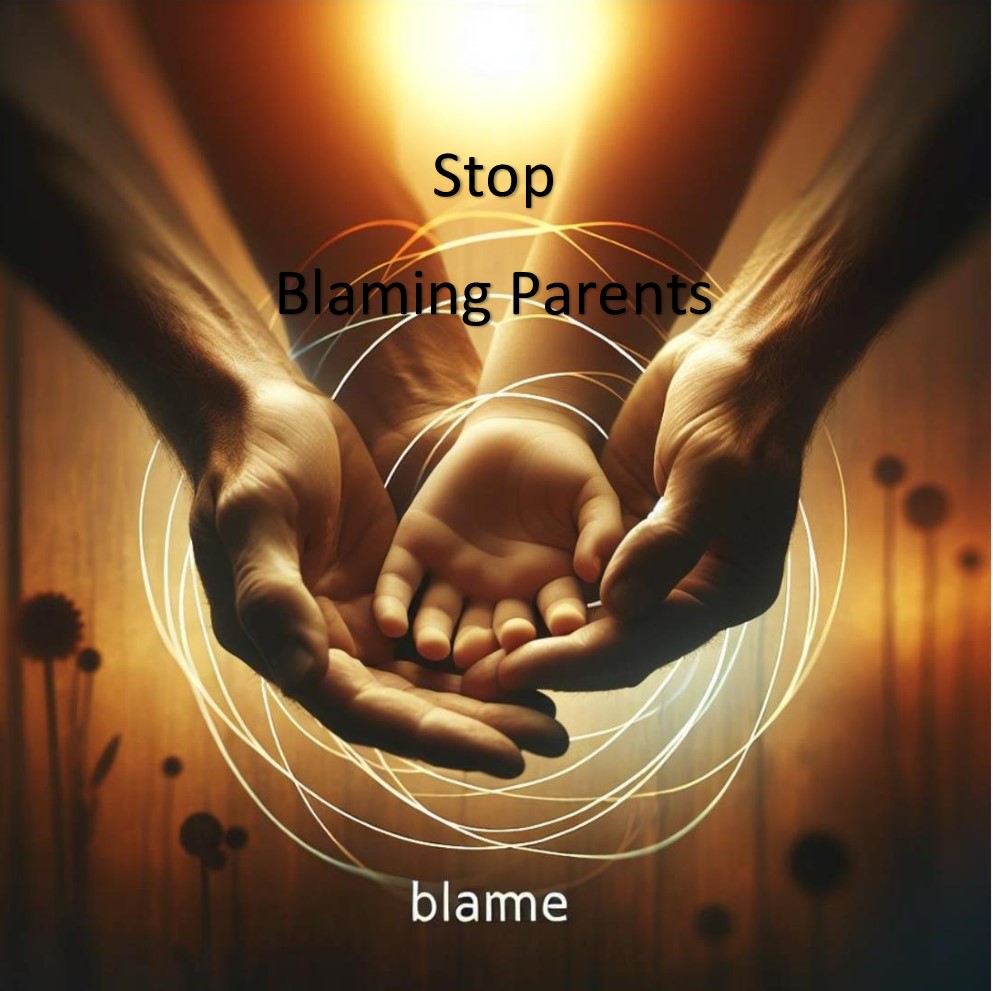
Table of Contents | Stop Blaming Parents
Details
Why do you tend to blame your parents for who you are now?
How do you stop blaming your parents?
So here are the 9 reasons why you should stop blaming your parents for who you are today.
Shaping our lives
Trapping ourselves
Digging to the root
Our strength, our power
A new perspective
Stop blaming your parents for forgiveness
Stop blaming your parents, and love yourself
With a little assistance
Breaking free from their influence
Conclusion: stop blaming your parents
When we face challenges, it is natural to feel frustration, especially if they persist or seem endless. We often look for something to direct our anger towards, a root cause of our problems. Where do they come from? Who can be held accountable?
How to Stop Blaming Your Parents?
For many, the answer lies with their parents. They reflect on their upbringing, how their parents treated them, and the influence of these experiences on their development, both in childhood and adulthood. Often, this reflection is legitimate. The influence of our parents on our lives persists long after our childhood. However, is it really fair to blame them for everything?
Systematically blaming your parents for your difficulties can create new problems, trapping you in a destructive cycle.
So here are the 9 reasons why you should stop blaming parents for who you are today.
1- Shaping Our Lives
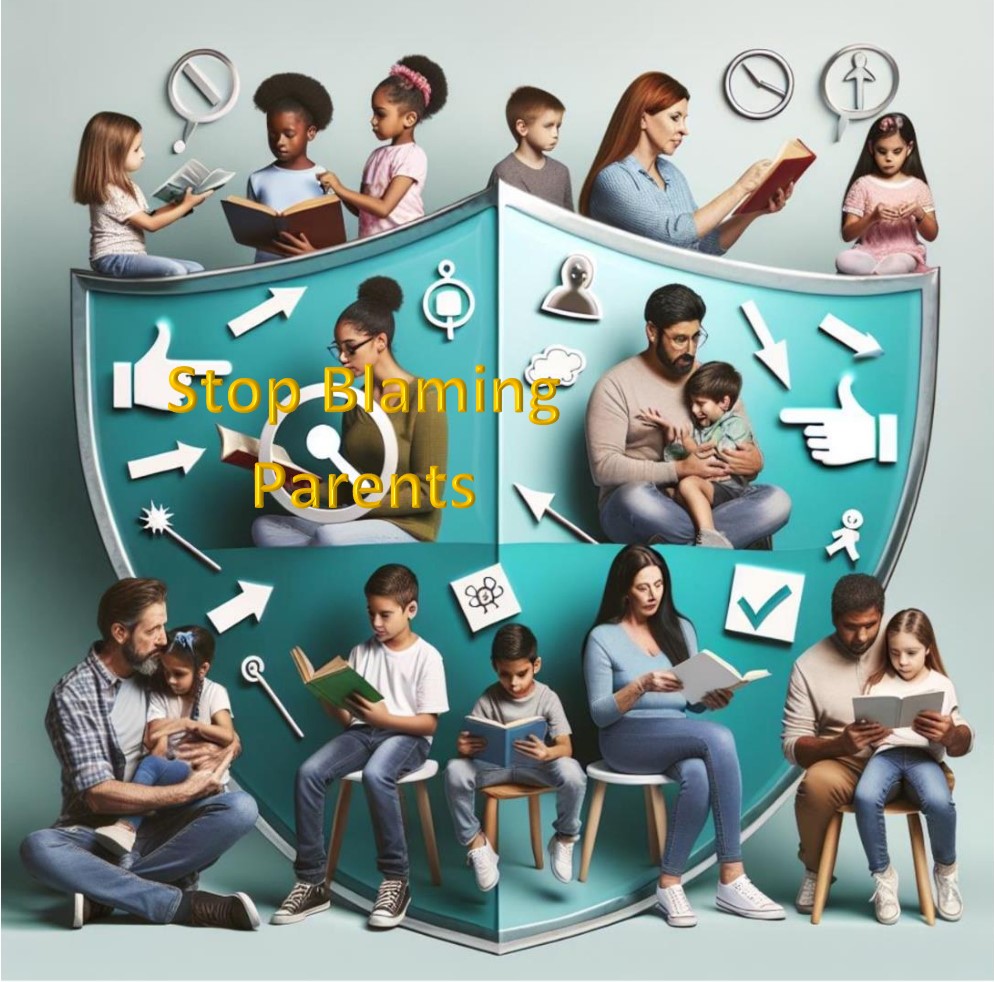
Believing that our parents are responsible for our struggles can engender a sense of powerlessness, resentment, and dependency in our own lives. By constantly focusing our attention on them, we relinquish our personal power and let external forces influence our present and future. This downward spiral can generate negative thoughts and self-destructive behaviors, hindering our development and ability to create the life we truly desire.
However, this does not mean that our parents bear no responsibility for our current situation. Some have genuinely suffered unfair treatment from their parents, and it is fair to hold them accountable. However, it is essential not to let ourselves be trapped in this pattern, no matter how real it may be.
2- Trapping Ourselves
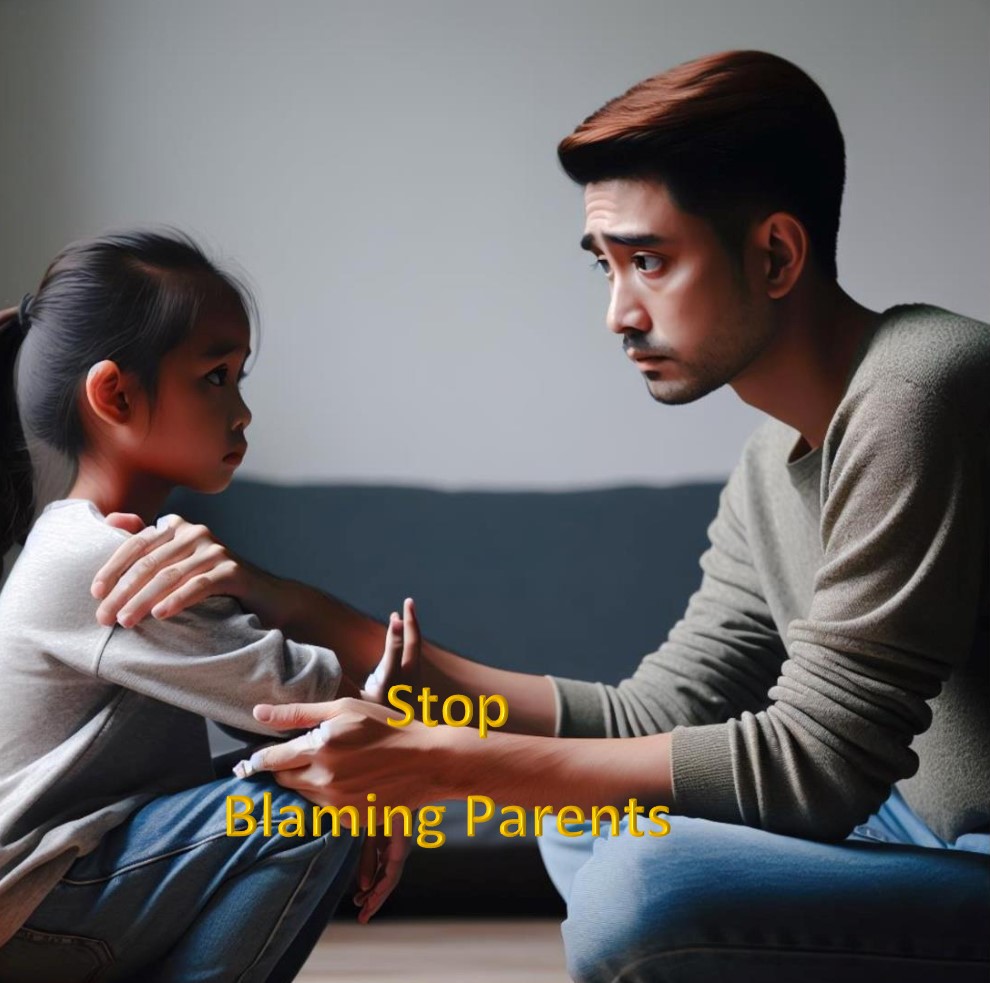
We can find ourselves trapped in a harmful cycle by attributing the responsibility for our current situation to our parents. This goes beyond our emotional well-being and affects our relationships, careers, and overall sense of happiness. These unresolved feelings can compromise our ability to establish healthy connections with others, leading to trust, vulnerability, and communication issues.
By remaining attached to our parents’ past actions, we risk convincing ourselves that we cannot change our situation and build a fulfilling life. We feel trapped, even though the path to change is always open.
3- Digging to The Root
To overcome blaming our parents, we must explore the underlying reasons for this attitude. Often, this feeling stems from unhealed emotional wounds, unmet needs, or a lack of understanding of our parents’ difficulties and limitations. Understandably, we may have difficulty fully grasping their perspective as children.
By examining this context, we can begin to demystify the hold that parental blame has on our mental well-being. Recognizing that our parents have also been shaped by their experiences and circumstances can help us understand their parenting styles and choices.
4- Our Strength, Our Power
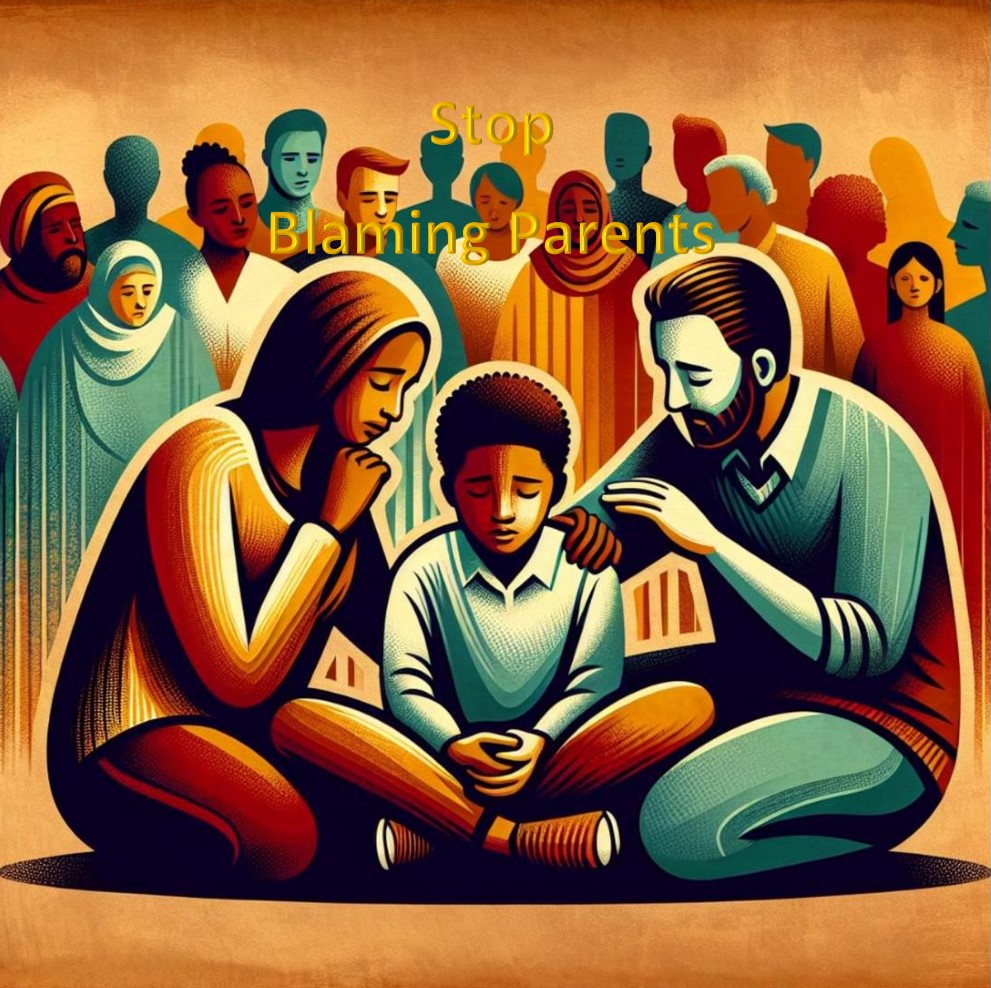
T
o break free from the vicious cycle of blame and suffering, we must become aware of our responsibility. Although our upbringing may have impacted certain aspects of our personality and beliefs, we can make choices and forge paths.
By taking on this responsibility, we regain control of our lives and can actively work to create the reality we truly desire. By acknowledging the influence of external factors and our ability to shape our destiny, we can transcend the limits imposed by parental blame.
5- A New Perspective
But this requires conscious effort. Instead of remaining trapped in blame and resentment towards your childhood, consider changing your perspective. Take the time to reflect on the positive aspects of your upbringing, the lessons you have learned, and the strengths you have gained through your experiences. By reframing your viewpoint, you may find gratitude for the good times and resilience in the face of challenges, allowing you to transform your relationship with your past.
You can regain a sense of empowerment by recognizing how your childhood experiences have contributed to your current strengths and skills, even if they have also caused wounds.
6- Stop Blaming Your Parents for Forgiveness
The practice of forgiveness, whether towards yourself or your parents, is a powerful act of healing that can help break the chains of parental blame.
It is essential to recognize that our parents are human beings with flaws, weaknesses, and limitations. By forgiving those who have hurt us, we free ourselves from the burden of resentment, thus opening the way to healing and personal growth. Recognizing the humanity and imperfections of our parents can help us emotionally detach from blame and cultivate more empathy toward them.
However, forgiveness is an individual process; not only some are ready to forgive immediately. It may require time and reflection. It is important to respect your own pace and not force yourself to forgive before you are prepared to do so.
7- Stop Blaming Your Parents, And Love Yourself
On a more intimate level, the commitment to self-reflection and self-acceptance is a crucial and significant step in the healing journey. Take the time to explore your beliefs, values, and aspirations independently of the influence of your upbringing. Learn to fully embrace your individuality, recognizing both your strengths and areas for growth while working on unconditionally accepting yourself.
This reflective process can significantly strengthen your self-esteem, regardless of external influences, including those of your parents. By delving deeply into yourself, you can gain valuable insights into your motivations and behaviors, allowing you to understand your reactions to your upbringing better and discover how to free yourself from it.
8- With A Little Assistance
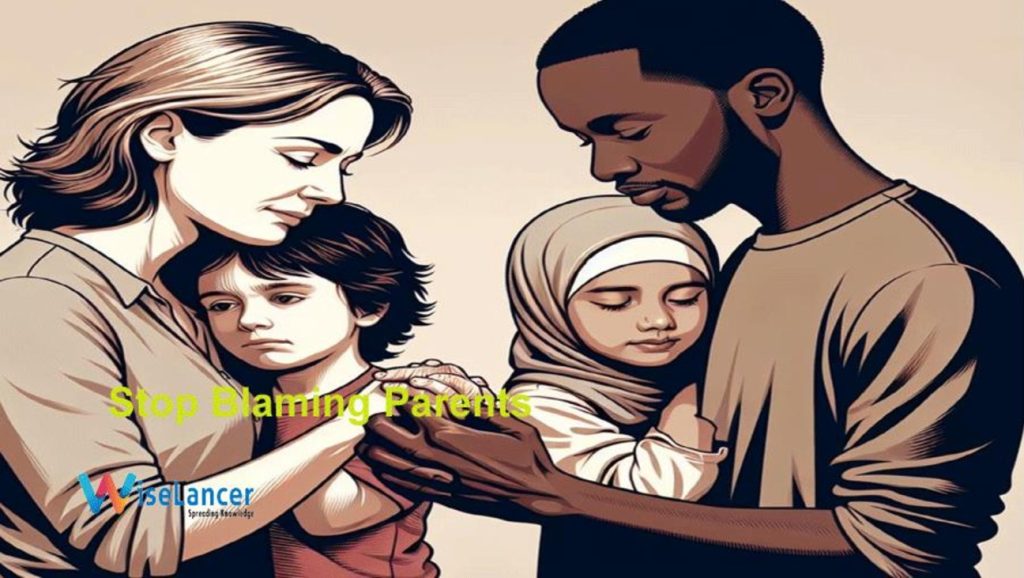
Overcoming the burden of parental blame can be a challenging journey, but you do not have to do it alone. Whether by seeking the help of a therapist, joining support groups, or turning to trusted friends and mentors. Surround yourself with a support network. it can offer encouragement, guidance, and a sense of belonging as you go through this profoundly transformative process.
Connecting with others people who have had similar experiences can also provide validation, comfort, and a source of warmth that will help you stay motivated on your path to more profound inner peace.
9- Breaking Free from Their Influence
Freeing yourself from parental blame requires recognizing the power of choice and change. You can redefine your story, shape your beliefs, and create the life you truly want. By embracing this perspective and taking concrete actions for personal development, you can break free from parental blame and chart a path aligned with your deepest aspirations.
By accepting your potential for transformation and recognizing that you can rise above the emotional limitations that still hold you back, you initiate a radical change in your life. Blaming your parents for their mistakes is understandable, but allowing this blame to dictate your existence will only perpetuate their hold on you. You are so much more than that, even if you have made mistakes. It’s time to realize it for yourself.
Conclusion: Stop Blaming Parents
In conclusion, overcoming parental blame is a deeply personal and often challenging journey. However, by becoming aware of our power of choice and change through self-reflection and self-acceptance and by surrounding ourselves with a strong support network, we can free ourselves from the emotional constraints of the past.
By recognizing our ability to shape our destiny and create the life we desire, we can free ourselves from blame and embrace a more fulfilling existence aligned with our true aspirations.
The healing journey can be long and sometimes difficult. But by cultivating resilience, self-compassion, and the determination to pursue our personal growth, we can rise above the limitations of the past and embrace a future filled with possibilities and continuous development.
Need Help or Advice in Academic Writing
See Samples
https://independent.academia.edu/shamsulIslam8
Need Help or Advice in Content Writing Management:
Would you like more advice? Do you have good practices to share? Please feel free to express yourself in the comments. Also, if you want help in writing content to drive more traffic and boost conversions, please get in touch through Contact our team or send your requirements here.
Do you want help writing quality content, driving traffic to your website, and boosting conversions? You can contact me through my Freelancer.com profile. I always prefer to work through my Freelancer.com profile for smooth functioning. Here, you pay safely and securely.
Read More:
WHAT TO DO WHEN CHILDREN DON’T LIKE THEIR PARENTS
HOW TO START A BUSINESS WHILE LIVING WITH PARENTS?
7 BIG MISTAKES THAT CAN DESTROY FAMILY RELATIONSHIPS
